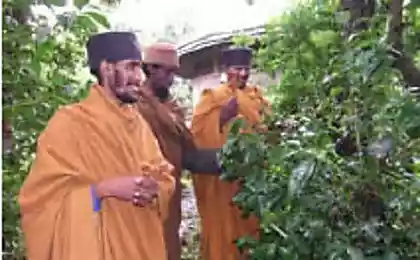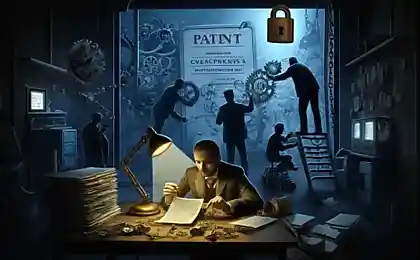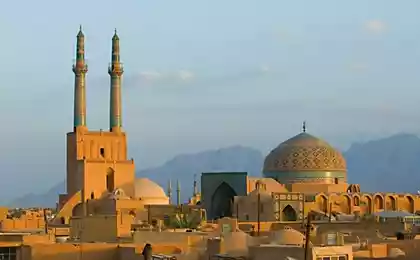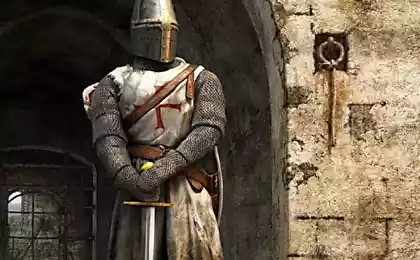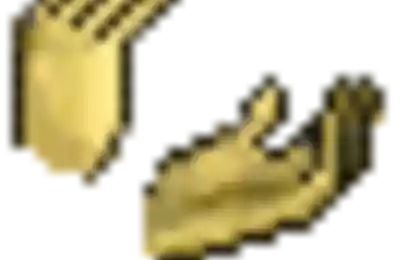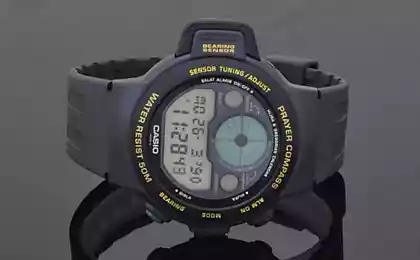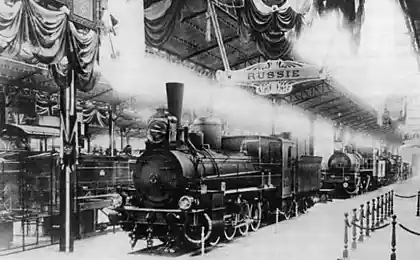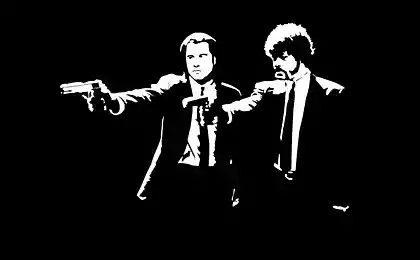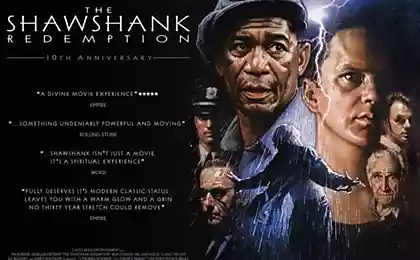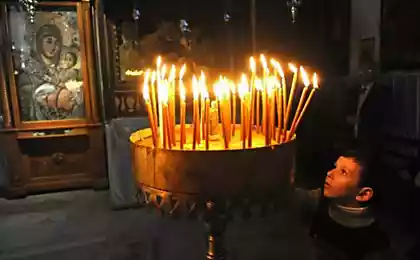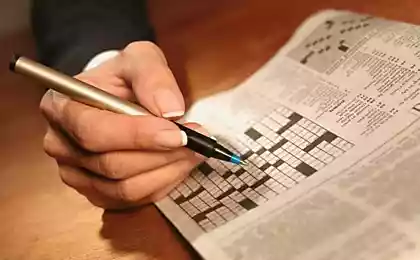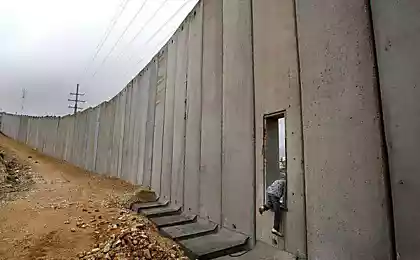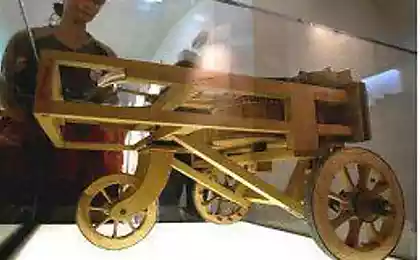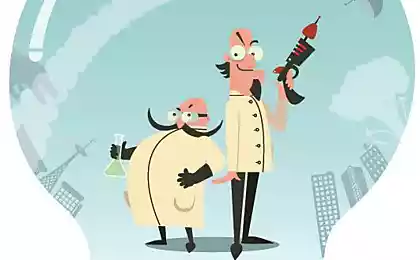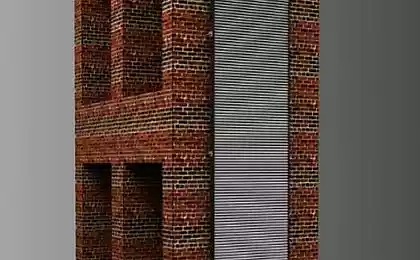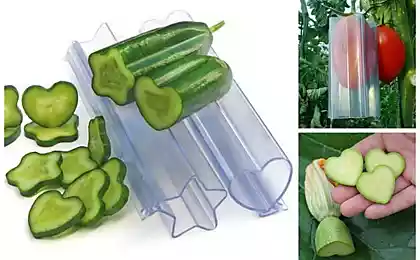1338
Muslim Inventions
1. Coffee
According to one legend, an Arab, Khalid pass his sheep in the Kaffa region of southern Ethiopia, and noticed that the animals become more energetic when eating certain berries. After collecting them, Khalid brewed coffee first.
The first information on the export of coffee beans concerned exports from Ethiopia to Yemen. Already in the 15th century it was brought to Mecca and Turkey from where the coffee came to Venice in 1645. In England the grain brought Turks Pasqua Ros in 1650 and opened his first store in London's Lombard Street. The way the word "coffee" is very long: the Arabic "qahwa" turned into a Turkish "kahve". The Italians have adopted it as a "caff?", The English appeared the word "coffee", and in Russian - "coffee".
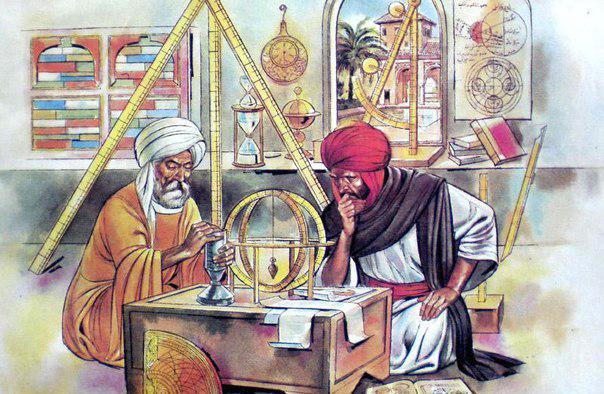
2. Camera
The ancient Greeks believed that the eyes emit light, and people see through this. That is really light enters the eye guessed Ibn al-Haytham (Ibn al-Haitham), Muslim mathematician, astronomer and physicist who lived in the 10th century. Watching the light penetrates through the slit shutters, he noticed that the smaller was the gap, the better it was visible image, and invented the first camera obscura ("qamara" in Arabic means "dark or private room"). It is also believed that al-Haytham the first to translate the physics of the discharge into the experimental philosophy of science.
3. Chess
In chess played by the ancient Indians, but the game is much different from the one we know today. The modern version of chess appeared in Persia, where the west and spread to Europe in the 10th century in Spain the game was introduced by the Moors.
4. Parachute
A thousand years before the Wright brothers, the idea to create the aircraft came to a head a Muslim poet, astronomer and engineer Abbas Ibn Firnas (Abbas ibn Firnas). In 852, he jumped from the roof of a mosque in a freely fluttering cloak with attached wooden planks. Firnas hoped to soar like a bird, but it did not happen. Cloak slowed his fall, and became something of a first parachute, and scientist escaped with slight shock and minor injuries. At the age of 70 years by improving its staff, Firnas repeated his attempt, jumping from a mountain. He managed to survive in the air for 10 minutes, but in the end he crashed on landing: the fact that your machine is not he attached a tail.
5. Soap and shampoo
Daily swimming - one of the requirements of Islam. Perhaps that is why the Muslims were engaged in improving the recipe of soap. It is known that the similarity of soap was the ancient Egyptians and Romans, but the Arabs guessed mix vegetable oils with sodium hydroxide and aromatics. In England, the shampoo came in 1759, when a Muslim bathhouse opened in Brighton.
6. Modern chemistry
Yabir Ibn Haiyan (Jabir ibn Hayyan) - a scientist who transformed alchemy into chemistry. In the 9th century he discovered the processes that are still used in modern science: distillation, crystallization, melting, refining, oxidation, evaporation and filtration. Haiyang opened sulfuric and nitric acid, and invented distillation apparatus, through which the world appeared alcoholic beverages and flavors used in the manufacture of perfumes.
7. Crankshaft
Crankshaft device which converts the rotary motion into linear, invented by a Muslim engineer Al-Jazari (al-Jazari). One of the most important inventions of mechanics, is still one of the main constituent parts of modern machines, originally used for irrigation. From the book engineer clear that he invented or improved valves and valves, has developed the first mechanical clock. Al-Jazari can be considered the father of robotics. A combination lock - also his invention.
8. pointed arch
Pointed arch - a characteristic feature of European Gothic cathedrals, but the idea of such arches has been borrowed from Islamic architecture. She was stronger than the semi-circular arch used by the Romans and Normans, and, therefore, allows you to build higher and more complex buildings. Also, Europeans borrowed from Muslim ideas of design ribbed arches and round windows, outlets. European castles became Muslim with a copy of their battlements, parapets, barbacans and square towers. For example, the architect of Henry V's castle was a Muslim.
9. Surgical Instruments
Many modern surgical instruments including scalpels, medical saws, forceps, fine scissors, left out what they came up with a Muslim surgeon al-Zahrawi (al-Zahrawi). It was he who discovered that catgut used for internal stitches overlay, absorbed in the body naturally and can be used in the manufacture of medical capsules. In the 13th century, 300 years before William Harvey (William Harvey), the Muslim physician Ibn Nafis (Ibn Nafis) described the process of circulation. Muslim doctors invented anesthetics and cannula for cataract extraction.
10. Windmill
Windmill Arabs invented in the year 634 and was used to grind corn and water supply. In the Arabian desert the only source of power was the wind, blowing months in one direction and that source was used at full capacity. The mill had 6 or 12 wings covered with cloth and palm leaves. In Europe, the first windmills appeared only after 500 years.
11. Vaccination
The first idea is not offered vaccinations Jenner and Pasteur, and Muslims. In Europe, this technique came from Turkey in 1724, in Istanbul, where this procedure noticed the wife of the English ambassador. In Turkey, children were vaccinated against smallpox 50 years before the Europeans discovered the vaccine.
12. Pen
The first fountain pen invented for the Sultan in the year 953: the governor demanded a pen which would not stain his clothes and hands. Then the ink supply system to the tip of the pen was the same as now.
13. The numbering system
Perhaps a numbering system, which is used all over the world, comes from India, but the form of numbers - Arabic, and first appeared in print in the work of the Muslim mathematicians al-Khwarizmi (al-Khwarizmi) and al-Kindi (al-Kindi) to 825 year. The prototype of the word "algebra" was the title of the book al-Khwarizmi "Al-Jabr wa-al-Muqabilah", with the principles described in it are still used. The results of the Muslim mathematicians, including the theory of algorithms and some trigonometry, came to Europe only after 300 years. Outdoor al-Kindi frequency analysis served as the basis for the development of modern cryptography.
14. A three-course meal
The concept of a three-course meal - soup, followed by eating meat or fish, followed by fruit and nuts - in the 9th century brought with him from Iraq to Cordoba Ali ibn Nafi (Ali ibn Nafi). He also coined the crystal glasses (invented, incidentally, is already above Abbas Ibn Firnas).
15. Carpets
Carpets from medieval Muslims were regarded as an integral part of paradise. Weaving Technique was fairly well developed, there are always new colors, and the very art of weavers was not in last place. In Europe, the floors covered with woven rugs, under which, due to a bad harvest was a pile of garbage, bones and more. Not surprisingly, the Arab and Persian carpets quickly took root.
16. Check
If non-Muslims, the checks we did not have to. The word "check" is derived from the Arabic "saqq", which means a written commitment to pay for the goods on delivery. The need for the checks arose from the fact that the money to transport over long distances was quite dangerous. Already in the 9th century Muslim businessmen could cash checks drawn on Baghdad banks in China.
17. Land - ball
In the 9th century, many Muslim scholars have believed that the Earth is a sphere. Said astronomer Ibn Hazm (Ibn Hazm), the proof is the fact that "the Sun is always vertical to a particular point on the Earth." It was 500 years before Galileo guessed it. The calculations of Muslim astronomers were so accurate that they made a mistake by less than 200 kilometers in determining the length of the equator, suggesting that it is 40253, 4 kilometers.
18 torpedoes and missiles
Though the Chinese invented saltpetre gunpowder out and used it in fireworks, it was the Arabs guessed clean it and apply potassium nitrate for military purposes. Muslims and Crusaders managed to scare his weapon. By the 15th century they invented missile "self-propelled and burn an egg," as they called it, and torpedoes, self-propelled pear-shaped bomb with an arrow on the end of that explode in enemy ships.
19. Gardens
In medieval Europe were the gardens, but it was the Arabs saw the garden as a place for relaxation and meditation. The first royal gardens of this kind appeared in the 11th century Muslim Spain. Homeland carnations and tulips - also a Muslim country.
According to one legend, an Arab, Khalid pass his sheep in the Kaffa region of southern Ethiopia, and noticed that the animals become more energetic when eating certain berries. After collecting them, Khalid brewed coffee first.
The first information on the export of coffee beans concerned exports from Ethiopia to Yemen. Already in the 15th century it was brought to Mecca and Turkey from where the coffee came to Venice in 1645. In England the grain brought Turks Pasqua Ros in 1650 and opened his first store in London's Lombard Street. The way the word "coffee" is very long: the Arabic "qahwa" turned into a Turkish "kahve". The Italians have adopted it as a "caff?", The English appeared the word "coffee", and in Russian - "coffee".

2. Camera
The ancient Greeks believed that the eyes emit light, and people see through this. That is really light enters the eye guessed Ibn al-Haytham (Ibn al-Haitham), Muslim mathematician, astronomer and physicist who lived in the 10th century. Watching the light penetrates through the slit shutters, he noticed that the smaller was the gap, the better it was visible image, and invented the first camera obscura ("qamara" in Arabic means "dark or private room"). It is also believed that al-Haytham the first to translate the physics of the discharge into the experimental philosophy of science.
3. Chess
In chess played by the ancient Indians, but the game is much different from the one we know today. The modern version of chess appeared in Persia, where the west and spread to Europe in the 10th century in Spain the game was introduced by the Moors.
4. Parachute
A thousand years before the Wright brothers, the idea to create the aircraft came to a head a Muslim poet, astronomer and engineer Abbas Ibn Firnas (Abbas ibn Firnas). In 852, he jumped from the roof of a mosque in a freely fluttering cloak with attached wooden planks. Firnas hoped to soar like a bird, but it did not happen. Cloak slowed his fall, and became something of a first parachute, and scientist escaped with slight shock and minor injuries. At the age of 70 years by improving its staff, Firnas repeated his attempt, jumping from a mountain. He managed to survive in the air for 10 minutes, but in the end he crashed on landing: the fact that your machine is not he attached a tail.
5. Soap and shampoo
Daily swimming - one of the requirements of Islam. Perhaps that is why the Muslims were engaged in improving the recipe of soap. It is known that the similarity of soap was the ancient Egyptians and Romans, but the Arabs guessed mix vegetable oils with sodium hydroxide and aromatics. In England, the shampoo came in 1759, when a Muslim bathhouse opened in Brighton.
6. Modern chemistry
Yabir Ibn Haiyan (Jabir ibn Hayyan) - a scientist who transformed alchemy into chemistry. In the 9th century he discovered the processes that are still used in modern science: distillation, crystallization, melting, refining, oxidation, evaporation and filtration. Haiyang opened sulfuric and nitric acid, and invented distillation apparatus, through which the world appeared alcoholic beverages and flavors used in the manufacture of perfumes.
7. Crankshaft
Crankshaft device which converts the rotary motion into linear, invented by a Muslim engineer Al-Jazari (al-Jazari). One of the most important inventions of mechanics, is still one of the main constituent parts of modern machines, originally used for irrigation. From the book engineer clear that he invented or improved valves and valves, has developed the first mechanical clock. Al-Jazari can be considered the father of robotics. A combination lock - also his invention.
8. pointed arch
Pointed arch - a characteristic feature of European Gothic cathedrals, but the idea of such arches has been borrowed from Islamic architecture. She was stronger than the semi-circular arch used by the Romans and Normans, and, therefore, allows you to build higher and more complex buildings. Also, Europeans borrowed from Muslim ideas of design ribbed arches and round windows, outlets. European castles became Muslim with a copy of their battlements, parapets, barbacans and square towers. For example, the architect of Henry V's castle was a Muslim.
9. Surgical Instruments
Many modern surgical instruments including scalpels, medical saws, forceps, fine scissors, left out what they came up with a Muslim surgeon al-Zahrawi (al-Zahrawi). It was he who discovered that catgut used for internal stitches overlay, absorbed in the body naturally and can be used in the manufacture of medical capsules. In the 13th century, 300 years before William Harvey (William Harvey), the Muslim physician Ibn Nafis (Ibn Nafis) described the process of circulation. Muslim doctors invented anesthetics and cannula for cataract extraction.
10. Windmill
Windmill Arabs invented in the year 634 and was used to grind corn and water supply. In the Arabian desert the only source of power was the wind, blowing months in one direction and that source was used at full capacity. The mill had 6 or 12 wings covered with cloth and palm leaves. In Europe, the first windmills appeared only after 500 years.
11. Vaccination
The first idea is not offered vaccinations Jenner and Pasteur, and Muslims. In Europe, this technique came from Turkey in 1724, in Istanbul, where this procedure noticed the wife of the English ambassador. In Turkey, children were vaccinated against smallpox 50 years before the Europeans discovered the vaccine.
12. Pen
The first fountain pen invented for the Sultan in the year 953: the governor demanded a pen which would not stain his clothes and hands. Then the ink supply system to the tip of the pen was the same as now.
13. The numbering system
Perhaps a numbering system, which is used all over the world, comes from India, but the form of numbers - Arabic, and first appeared in print in the work of the Muslim mathematicians al-Khwarizmi (al-Khwarizmi) and al-Kindi (al-Kindi) to 825 year. The prototype of the word "algebra" was the title of the book al-Khwarizmi "Al-Jabr wa-al-Muqabilah", with the principles described in it are still used. The results of the Muslim mathematicians, including the theory of algorithms and some trigonometry, came to Europe only after 300 years. Outdoor al-Kindi frequency analysis served as the basis for the development of modern cryptography.
14. A three-course meal
The concept of a three-course meal - soup, followed by eating meat or fish, followed by fruit and nuts - in the 9th century brought with him from Iraq to Cordoba Ali ibn Nafi (Ali ibn Nafi). He also coined the crystal glasses (invented, incidentally, is already above Abbas Ibn Firnas).
15. Carpets
Carpets from medieval Muslims were regarded as an integral part of paradise. Weaving Technique was fairly well developed, there are always new colors, and the very art of weavers was not in last place. In Europe, the floors covered with woven rugs, under which, due to a bad harvest was a pile of garbage, bones and more. Not surprisingly, the Arab and Persian carpets quickly took root.
16. Check
If non-Muslims, the checks we did not have to. The word "check" is derived from the Arabic "saqq", which means a written commitment to pay for the goods on delivery. The need for the checks arose from the fact that the money to transport over long distances was quite dangerous. Already in the 9th century Muslim businessmen could cash checks drawn on Baghdad banks in China.
17. Land - ball
In the 9th century, many Muslim scholars have believed that the Earth is a sphere. Said astronomer Ibn Hazm (Ibn Hazm), the proof is the fact that "the Sun is always vertical to a particular point on the Earth." It was 500 years before Galileo guessed it. The calculations of Muslim astronomers were so accurate that they made a mistake by less than 200 kilometers in determining the length of the equator, suggesting that it is 40253, 4 kilometers.
18 torpedoes and missiles
Though the Chinese invented saltpetre gunpowder out and used it in fireworks, it was the Arabs guessed clean it and apply potassium nitrate for military purposes. Muslims and Crusaders managed to scare his weapon. By the 15th century they invented missile "self-propelled and burn an egg," as they called it, and torpedoes, self-propelled pear-shaped bomb with an arrow on the end of that explode in enemy ships.
19. Gardens
In medieval Europe were the gardens, but it was the Arabs saw the garden as a place for relaxation and meditation. The first royal gardens of this kind appeared in the 11th century Muslim Spain. Homeland carnations and tulips - also a Muslim country.
